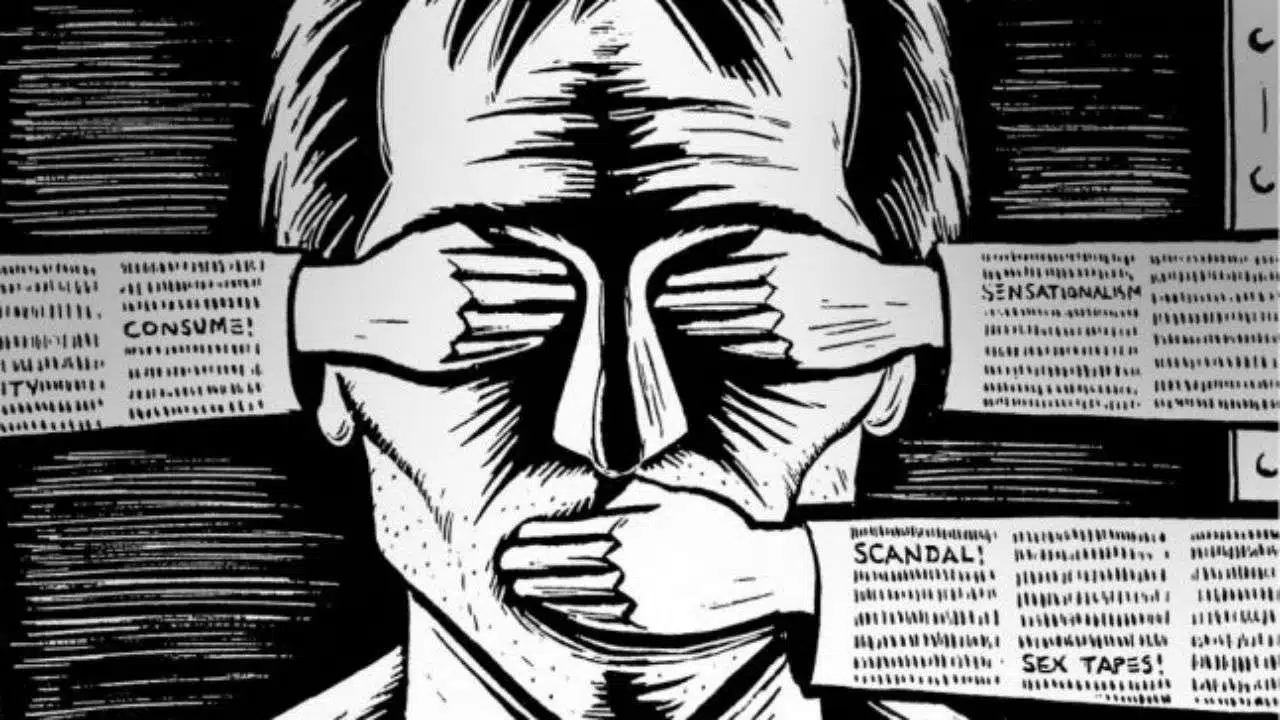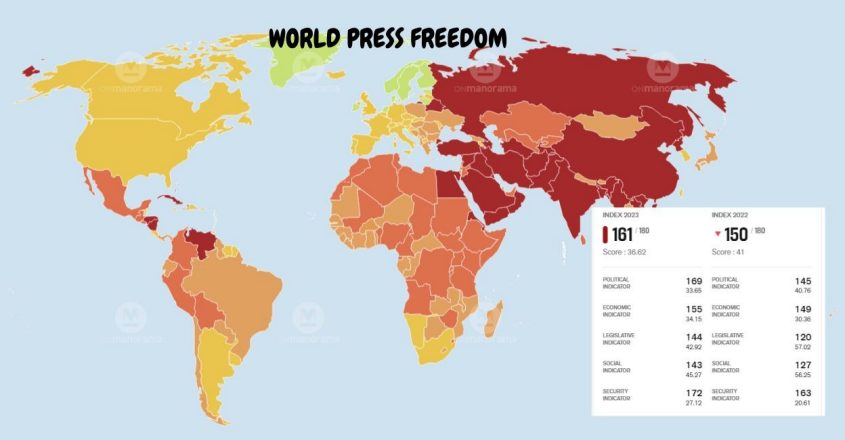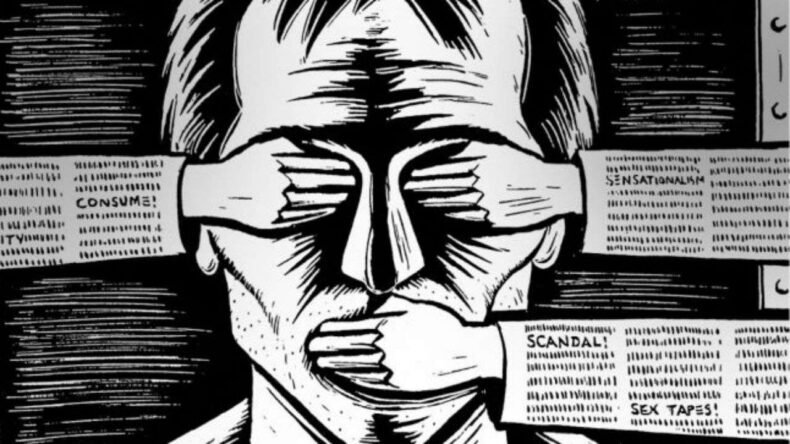
In recent years, press freedom in India has been under attack, and the latest report by the World Press Freedom Index has confirmed this trend. The report reveals that India’s press freedom rank has slipped to an abysmal 161 out of 180 countries. This marks a decline from the previous year’s ranking of 142 and is the worst position India has held since the inception of the index in 2002.
The Right to Freedom of Speech and Expression
The right to freedom of speech and expression is an essential aspect of democracy. It is enshrined in Article 19 of the Indian Constitution, which guarantees every citizen the right to freedom of speech and expression. The press plays a vital role in ensuring the exercise of this fundamental right. The media acts as a watchdog and holds those in power accountable. It is through the press that citizens can access information and form their opinions, making it a crucial component of a vibrant democracy.

Press Freedom in a Democracy
The report has sparked widespread concern among journalists, media houses, and civil society organizations in India. Many see the ranking as a reflection of the growing authoritarianism and intolerance towards dissent in the country. India’s score on the index has declined sharply, reflecting a deterioration in the overall climate for press freedom. India’s ranking has fallen even below Pakistan and Afghanistan, which are considered among the most authoritarian countries.
The report noted that the situation in India had worsened due to the growing number of attacks on journalists, censorship, and harassment of media personnel. The report also pointed out that the government’s failure to protect journalists and media houses from violence had contributed to the decline in press freedom.
The Role of the Government
There is a growing trend of censorship in India that urgently needs to be checked. India’s ranking is now lower than that of other countries in the region, including Nepal, Bhutan, and Sri Lanka. The report attributed the decline to the government’s increasing control over the media and its use of laws such as the sedition law to silence dissenting voices. The Indian government however rejects the report’s findings. The government claimed that the report was biased and did not take into account the steps taken by the government to promote press freedom. The government cited examples such as the introduction of a digital media ethics code and the decriminalization of defamation. However, many journalists and media organizations in India have criticized the government’s stance, arguing that it is merely an attempt to deflect attention from the real issues. They point out that the government’s record on press freedom has been poor, and the decline in India’s ranking is a reflection of this reality.
The Way Forward
The government must take immediate steps to address the decline in press freedom in India. The media must be allowed to operate freely and report on issues without fear of retribution. The use of sedition laws to stifle dissent must be curbed, and journalists and activists must be protected from harassment and intimidation. The government should also work towards promoting a culture of openness, transparency, and accountability, which will help in strengthening India’s democracy.
India’s plummeting press freedom rank is a cause for considerable concern. It is imperative that the Indian government takes concrete steps to address the issue of press freedom and safeguard the independence of the media. A free and vibrant press is essential for any democracy, and India must work towards ensuring that the voices of its citizens are heard, and the press is free to report without fear or favor.












